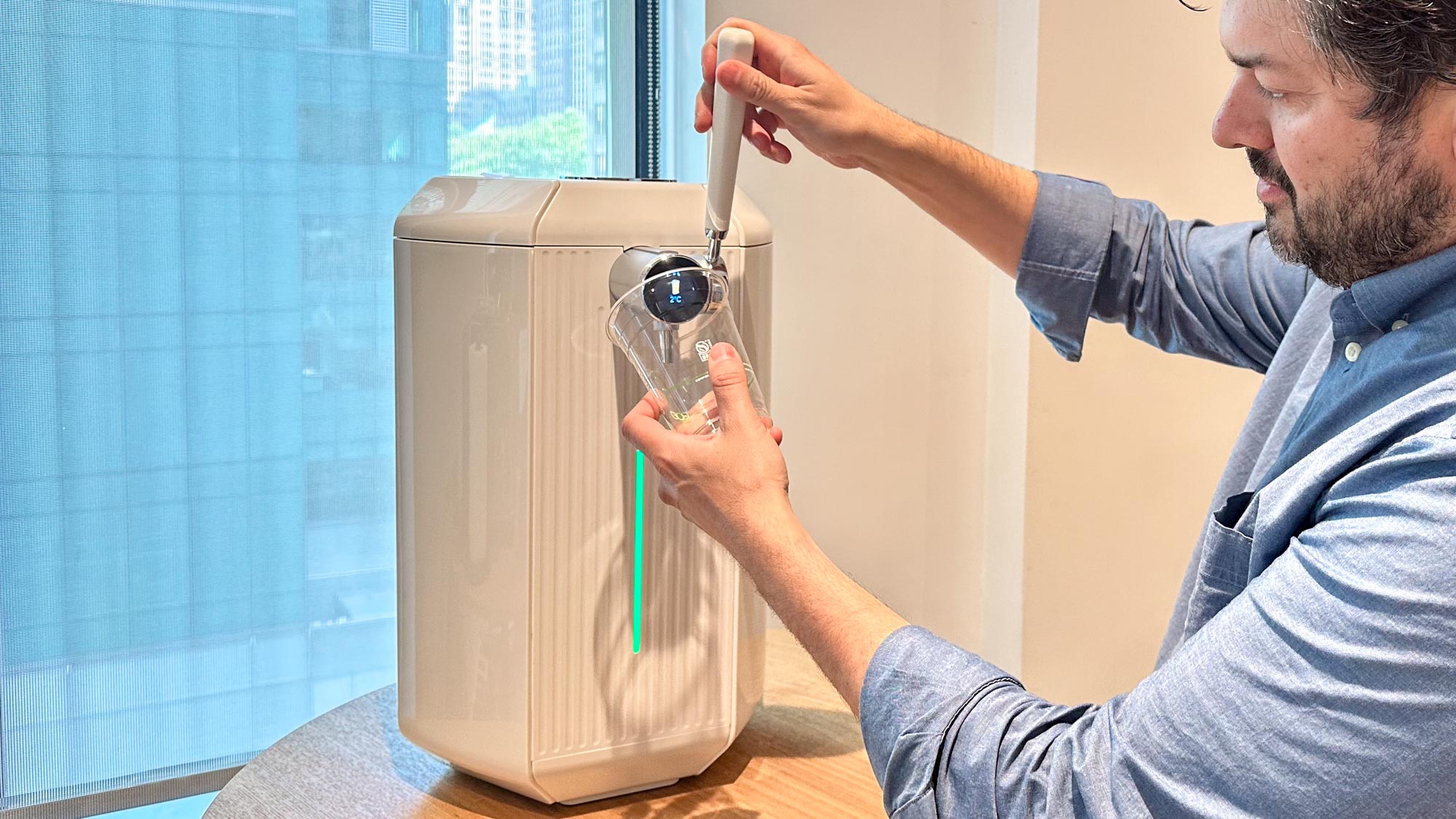
The craft beer boom may be over, but that isn’t stopping some from trying to tap into the craze. Enter the iGulu, the latest device to combine smart home technology with home brewing. This internet-connected gadget simplifies beermaking to an almost ridiculous degree: All you have to do is pour the ingredients into a container of water, and the machine does the rest.
iGulu isn’t the first company to try its hand at the high-tech home brew kit. One of the most popular was PicoBrew, which went out of business in 2020. Beermkr.com is another countertop home-brew machine, which launched on "Shark Tank" about the same time that PicoBrew folded, but it looks like it’s having trouble meeting demand.
Let’s forget about the other failed attempts at this market; sit back and pour yourself a cold one as you read my iGulu review to see if this home beermaking kit can lift your spirits.
iGulu: Price and availability
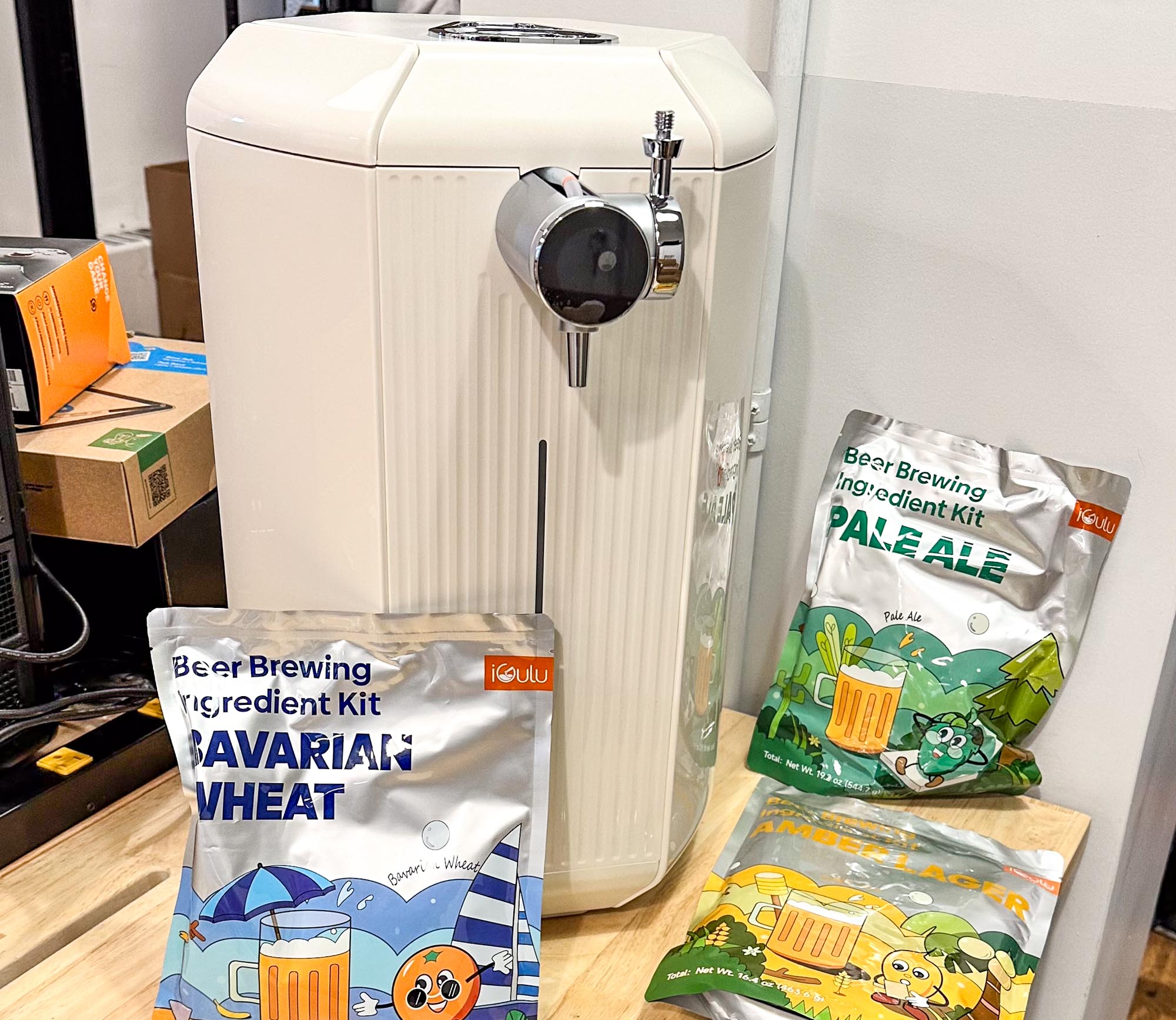
The iGulu machine is available on the company’s website for $699; you can get it in either white or black. You’ll also need to purchase a brew kit for whichever beer it is you want to make. Currently, the company sells an amber lager, hefeweizen, and a pale ale kit for $19.99 each. However, when I first checked out the iGulu at CES, the company said it was working on a bunch of other packs.
You can also use your own ingredients; the company’s website has instructions for making a hazy IPA, hard cider, and kombucha. However, this requires setting the machine to Master Mode; it’s currently free, but the company says that at some point in the future, it will cost $100 extra.
If you want to make and store more beer, you can buy additional fermentation kegs for $59.99 each.
iGulu review: Design and how it works
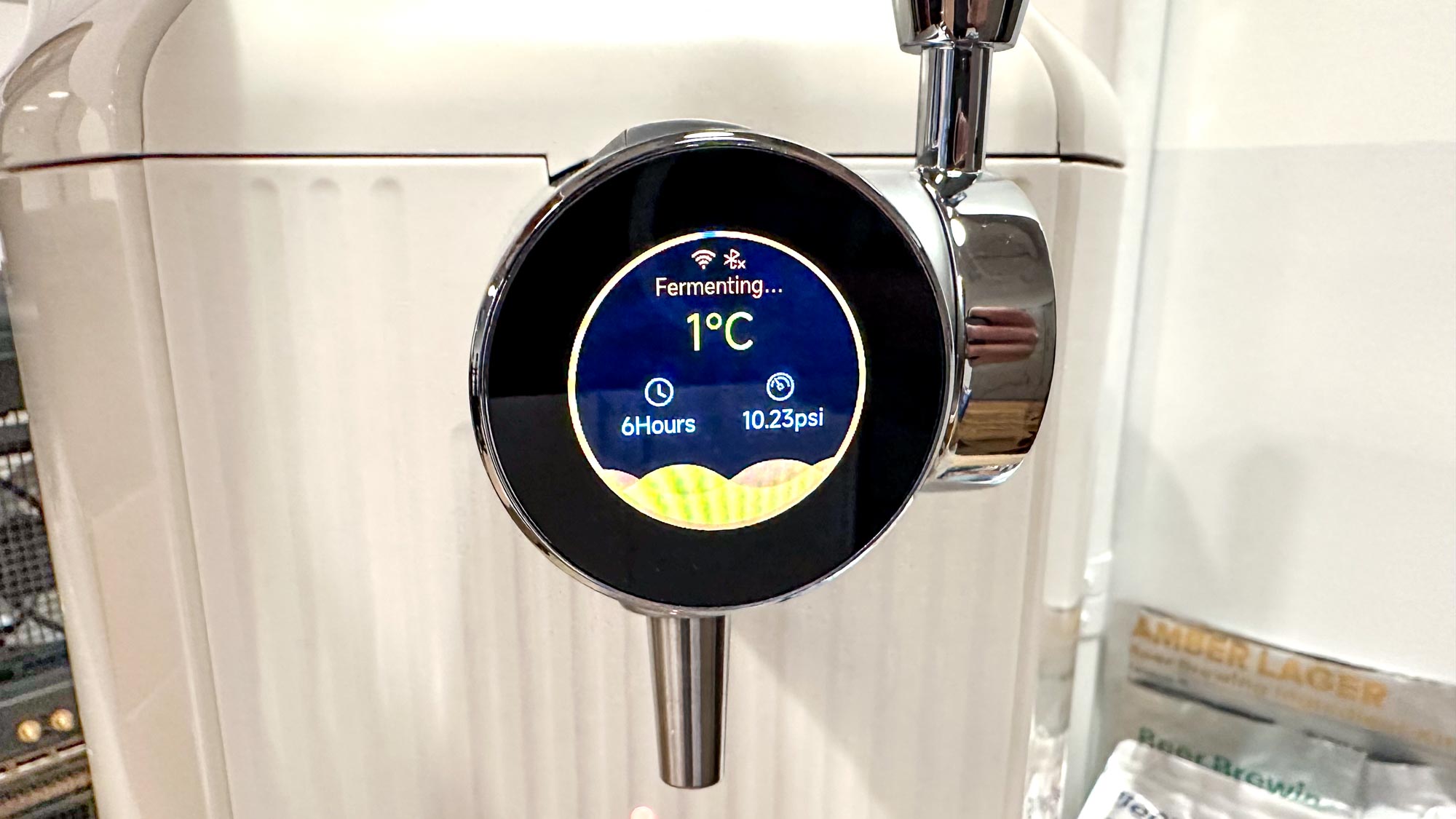
The iGulu looks like a small kegerator. It’s roughly cylindrical, measuring 20.5 inches high and 14.5 inches at its widest, with a tap at the front and a small color touchscreen display. A long LED strip runs down the length of the front, and changes color to let you know at a glance the status of your brew, or if it’s ready to drink.
A lid at the top opens to reveal the innards, the bulk of which is taken up by a one-gallon keg, where all the magic happens. Connected to the clear plastic keg is a cap and a hose attachment to dispense the beer once it’s ready. At the bottom of the iGulu is a compressor which cools the contents of the keg.
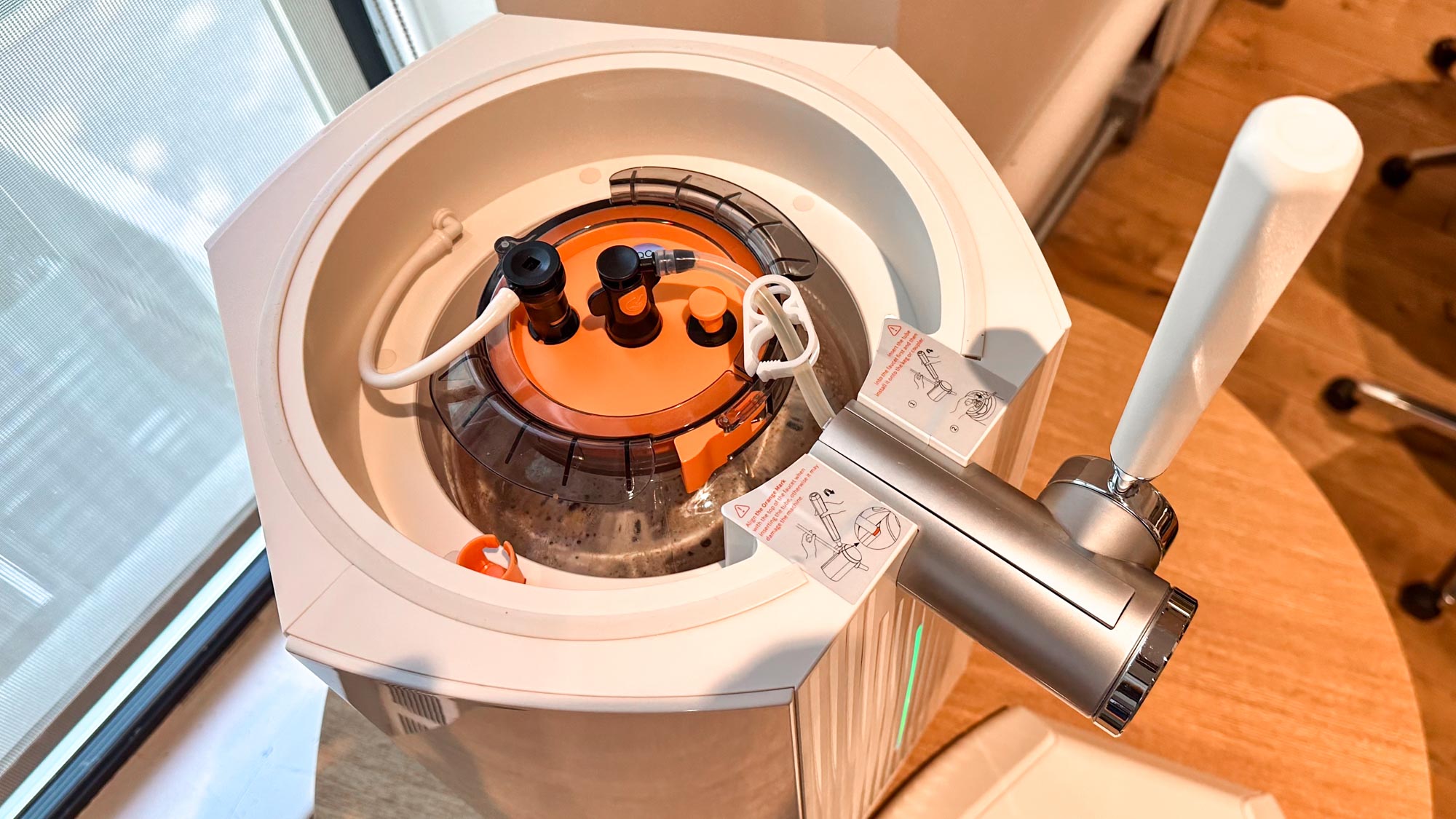
To get started, you simply fill the keg with water and pour the contents of the kit into the keg — we're talking packets of yeast, hops, and dry malt extract. You then attach the lid to the keg, placing it inside the machine, and connect two hoses. Then, you close the lid, and tap the NFC tag that came with the kit against the side of the iGulu. That tag lets the machine know at what temperature and for how long it should brew the beer and let it ferment.
And that’s it. This being a “smart” brewing machine, you’ll also need to connect it to Wi-Fi to ensure that its firmware is up to date, and so you can monitor its progress on the iGulu app on your phone. Over the course of a 20-day brew, I looked at the app a handful of times at most, just to ensure things were going ok.
Only afterward did someone point out to me that if the power went out and the iGulu was unable to maintain the proper temperature in the tank, I’d be sunk.
iGulu review: Taste test
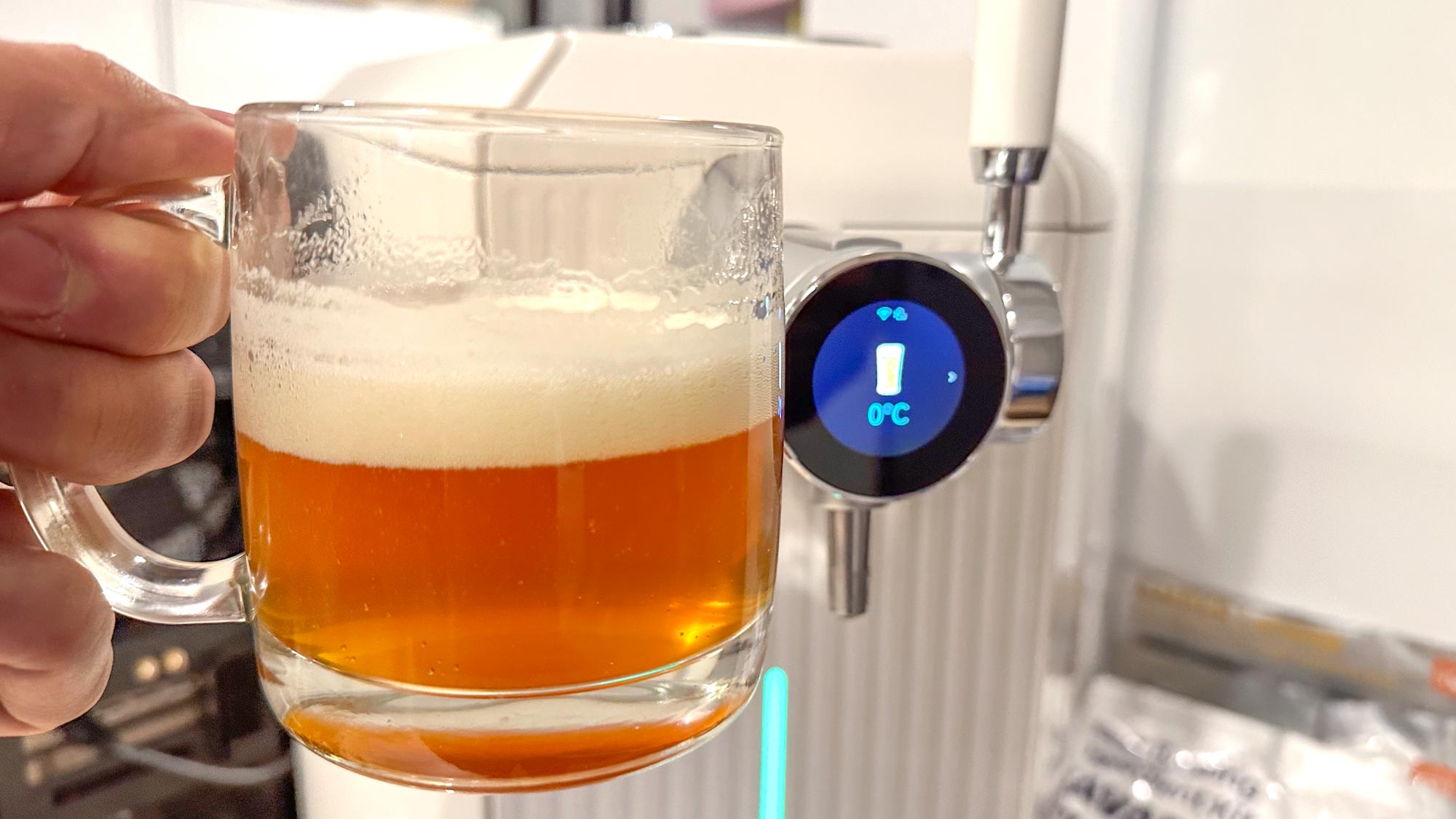
IGulu sent me all three of its kits to test; after polling my colleagues, I chose to start with the Amber Lager. After 20 days, the machine’s icon changed to a glass of beer, indicating it was ready to pour. I grabbed a glass, put it under the spot, and pulled the tap. And presto! A delicious lager, chilled to 36 degrees filled my cup.
The lager was very pleasant to drink, with no off notes, as can happen with lagers. However, the first pour was a bit foamy, so I took more care on the second, making sure to tilt the glass. To ensure that my own tastes weren’t unduly influencing this review, I also gave samples to several other colleagues in my office, who were all very grateful to drink beer during the workday. To a person, they all liked the taste of the beer. It wasn’t the best beer I’d ever tasted, but it was a lot better than some of the swill I drank in college.
To keep the appropriate level of pressure inside the keg as you pour out the beer, you can use the iGulu’s built-in compressor, or attach a CO2 bottle (sold separately). The machine warns you to use up the beer quickly if you opt for the first route, as it pumps in air.
I’ll update this review after I’ve made the Pale Ale and the Hefeweizen, but so far, the iGulu has done a good job.
Update (June 13, 2024): I successfully brewed the Pale Ale, which only took about nine days to make in the machine. It too, had a pleasant, inoffensive taste, with a hint of citrus. Each pour had a decent head on it, as if it was just a bit too oversugared. But everyone who tasted it liked it as well.
iGulu review: Verdict
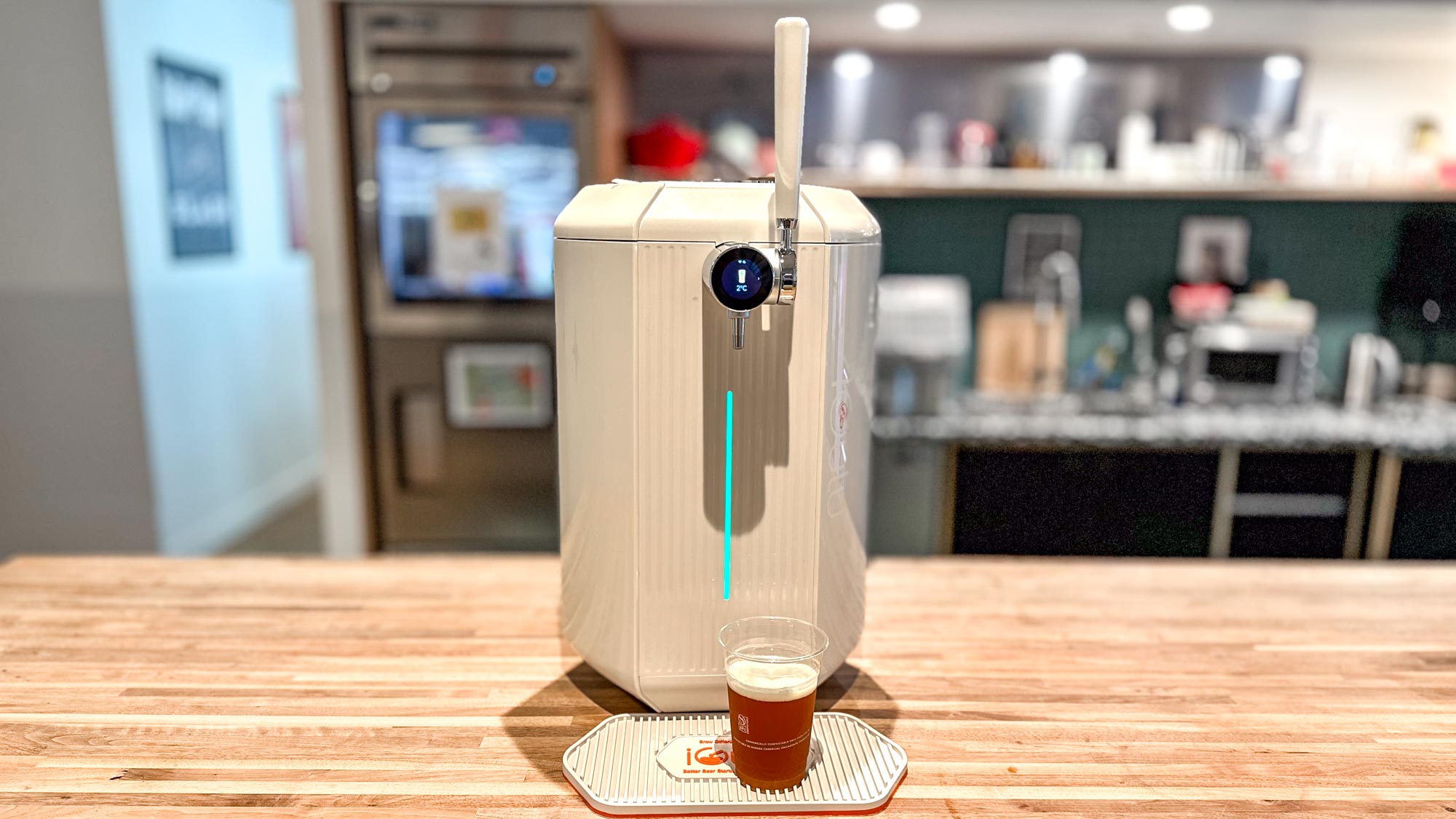
I was going to calculate the cost of how much beer you’d have to make with the iGulu versus buying beer at the store before you broke even, but realized it was pointless; anyone who’s ever brewed their own beer knows that it’s more about the process of making it yourself than saving money.
With the iGulu, the process of making your own beer couldn’t be easier, but I fear it’s almost too simple. All you have to do is fill a tank with water, pour in the ingredients, and start the machine. For better or worse, it takes all the guesswork out of brewing beer, and a lot of the hands-on parts that make the end result feel like you’ve actually made something yourself.
The now-defunct PicoBrew — which cost $200 less than the iGulu, and had far more beer kits available — included a few more steps in the process, giving you more pride of craftsmanship. The iGulu is closer to the (also now-defunct) Drinkworks machine, which used Keurig-like pods to make cocktails at home. It’s convenient, but where’s the fun in that?






